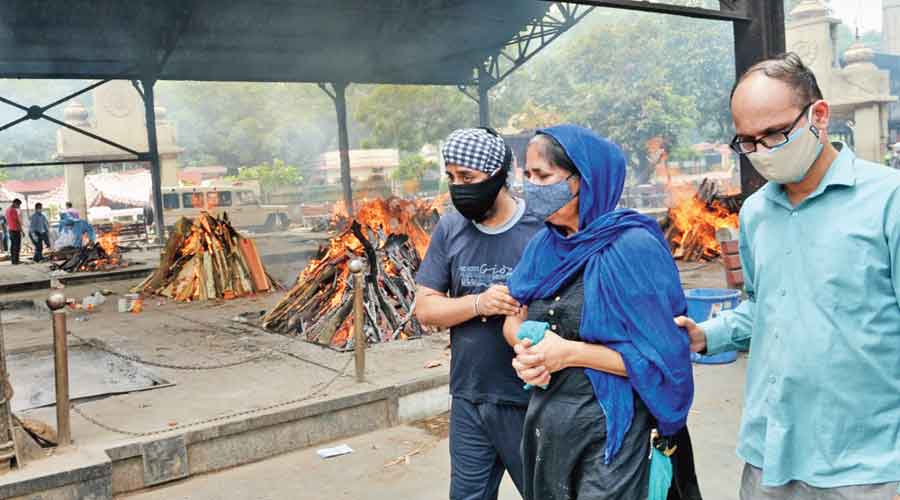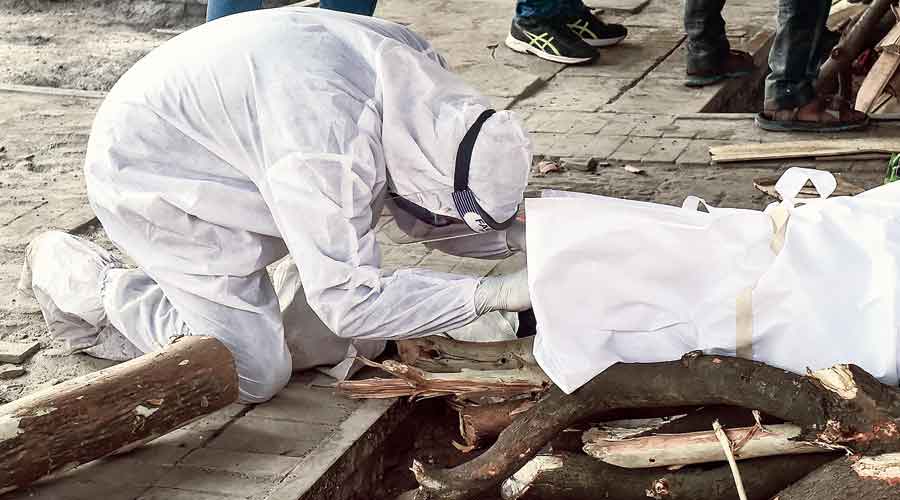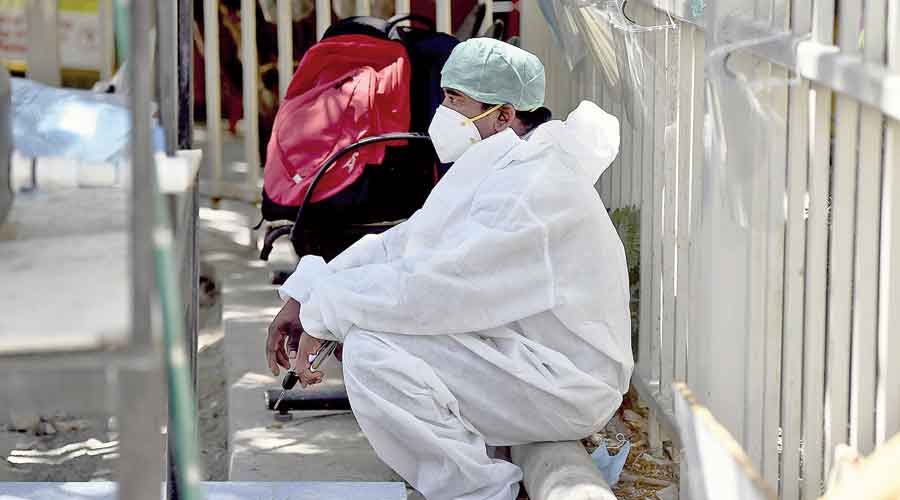
Sixteen states record shrinking epidemics- Is rising slower than two weeks ago with number of daily tests decreasing
Experts worry that a plateau in daily diagnostic tests might miss infections and reflect an 'artificial slowdown'

The country’s number of daily tests had peaked to 1.95 million on April 30 but has since plateaued between 1.5 million to 1.92 million over the past week — with 1.4 million tests on Sunday.
The seven-day average of daily new Covid-19 cases in the country — about 390,000 on Monday — has grown by 17,000 over the past week, compared with over 52,000 cases during the previous week.
Experts, however, are concerned that the numbers of daily tests have not kept pace with the surge and, in some states, declined at a time India has a high positivity rate — positive cases among those tested — of 24 per cent instead of an ideal less than 5 per cent.
“What this suggests is that for every 100,000 fewer tests on a day, we’re missing about 24,000 infections,” Rijo M. John, professor of health economics at the Rajagiri Institute of Social Sciences, Cochin, told The Telegraph.
Standard public health measures require health authorities to continue to ramp up testing to minimise the test positivity rate to at least below 5 per cent. But experts who are monitoring the testing rates have observed declines in some states.
“The number of cases we detect depends directly on the number of tests done,” said Giridhar Babu, a professor of epidemiology at the Indian Institute of Public Health, Bangalore. “We see the tests per million declining in some states. This can create an erroneous impression of falling cases.”
At the peak of the country’s first wave last year, John said, India’s daily new case counts had risen to about 97,000 at which point India was doing about 1.1 million tests daily. “Now, the number of cases has increased near four-fold, but we’re doing less than 2 million tests per day,” he said.
Oommen John, a physician and senior researcher at The George Institute for Global Health, New Delhi, said: “Under current circumstances, if we do not test more, there’ll be just more iceberg under the water.”
Experts believe the plateau in daily tests could be the outcome of multiple factors — overloaded labs unable to cope with increasing demand, shortages of materials required for tests, and redistribution of tests from high infection areas to low infection areas in the same state.
But, Professor Babu said, it is also possible that some areas are approaching the so-called peak counts and showing a real decline. “The second wave has been marked by a rapid ascent which makes a rapid descent likely,” he said.
India’s 360,191 new Covid-19 cases recorded on Monday morning from the previous 24 hours has raised the country’s total number of active patients by about 8,500 to over 3.74 million. But Maharashtra, the hardest-hit among states, on Monday had about 12,300 fewer active patients than a day earlier.
Uttar Pradesh, the most populated state, had around 11,000 fewer patients, Bihar had about 2,000 fewer patients, and Delhi’s count shrunk by 1,000 patients. But the counts of patients increased in 20 states, including Andhra Pradesh, Bengal, Karnataka, Kerala, Madhya Pradesh, Punjab and others.





0 Response to " Sixteen states record shrinking epidemics- Is rising slower than two weeks ago with number of daily tests decreasing"
Post a Comment
Disclaimer Note:
The views expressed in the articles published here are solely those of the author and do not necessarily reflect the official policy, position, or perspective of Kalimpong News or KalimNews. Kalimpong News and KalimNews disclaim all liability for the published or posted articles, news, and information and assume no responsibility for the accuracy or validity of the content.
Kalimpong News is a non-profit online news platform managed by KalimNews and operated under the Kalimpong Press Club.
Comment Policy:
We encourage respectful and constructive discussions. Please ensure decency while commenting and register with your email ID to participate.
Note: only a member of this blog may post a comment.